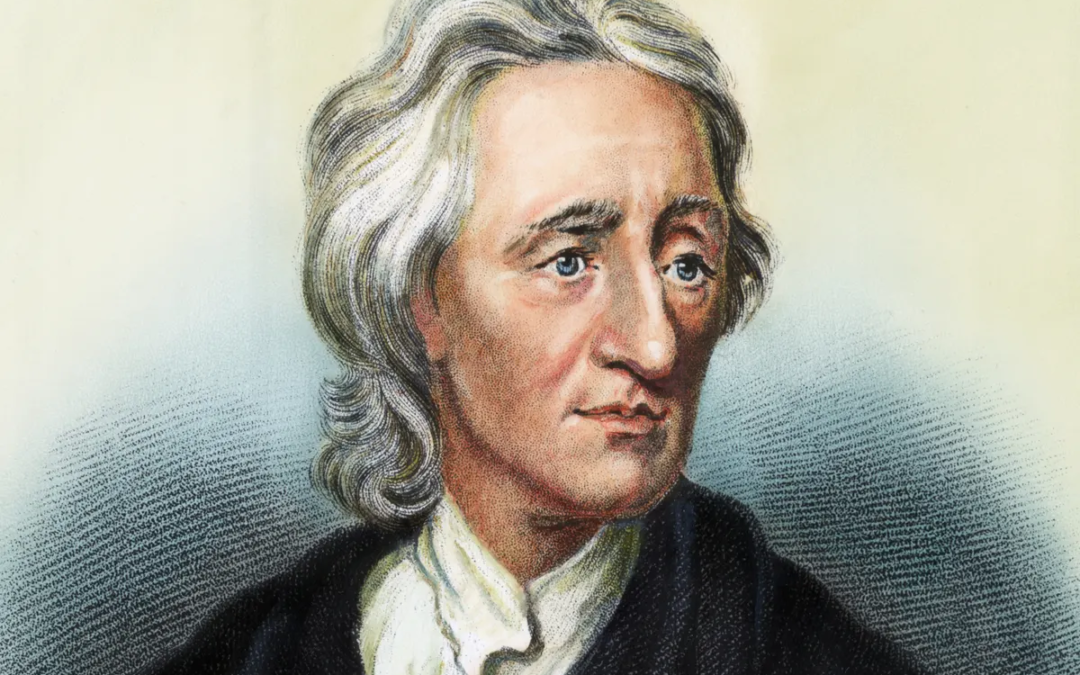John Locke (1632-1704) was a renowned English philosopher and political theorist of the 17th century. He made significant contributions to the fields of political philosophy, epistemology, and education, and his ideas have had a profound influence on Western thought.
Life and Background
Born in Wrington, Somerset, England, John Locke grew up in a period of significant political and religious turmoil. His father, a lawyer, instilled in him a passion for education and critical thinking. Locke received his education at Westminster School and Christ Church, Oxford, where he studied medicine, philosophy, and natural sciences.
Views on Human Nature
One of Locke’s most influential works is “An Essay Concerning Human Understanding” (1). In this seminal work, he proposed that the human mind is born as a “tabula rasa,” or blank slate, devoid of innate knowledge. Locke argued that individuals acquire knowledge through sensory experiences and reflection. He rejected the idea of innate ideas, asserting that all ideas are derived from external sensations or internal reflection.
According to Locke, the development of human nature is shaped by education, experiences, and the social environment. He emphasized the importance of nurturing rationality, moral character, and the pursuit of knowledge through empirical observation and reason.
Living a Good Life
Locke’s ideas on living a good life are closely tied to his political philosophy. He believed in the natural rights of individuals, which include life, liberty, and property (2). Locke argued that governments are created to protect these rights, and their legitimacy is derived from the consent of the governed.
Locke advocated for limited government and individual freedoms. He believed that individuals should have the freedom to pursue their interests, engage in voluntary associations, and accumulate property through their labor. For Locke, a good life involved the ability to exercise individual agency, enjoy personal freedoms, and pursue one’s own happiness within the boundaries of respect for others’ rights and the common good.
Anecdotes
While specific anecdotes about Locke practicing what he preached are scarce, his active engagement with the intellectual community of his time demonstrates his commitment to his philosophical principles. During his exile in the Netherlands, Locke became acquainted with influential thinkers and intellectuals, such as Philipp van Limborch and Benjamin Furly (3). These connections provided him with opportunities to exchange ideas, participate in philosophical and scientific discussions, and refine his own theories.
Locke’s correspondence with prominent figures like Anthony Ashley Cooper, the Earl of Shaftesbury, reveals his dedication to applying his philosophical ideas to practical concerns. Their collaboration on political and constitutional matters showcases Locke’s involvement in shaping real-world policies based on his theories of government and natural rights.
Reception and Legacy
John Locke’s ideas have had a profound and enduring impact on philosophy, politics, and education. Many philosophers and scientists have engaged with his work, offering both praise and critique.
David Hume, an influential philosopher of the 18th century, engaged with Locke’s empiricist principles and expanded upon them in his own writings (4). Hume explored the nature of knowledge, causation, and the self, building upon Locke’s arguments concerning the limits of human understanding.
Jean-Jacques Rousseau, a leading philosopher of the Enlightenment, engaged with Locke’s political philosophy, particularly his notions of individual rights and social contract theory. Rousseau offered a critical response to Locke’s emphasis on property rights, advocating for a more communal understanding of the social contract and the common good (5).
Locke’s influence extends beyond philosophy. His ideas on education and the importance of empirical learning have shaped educational theories and practices. Educators like John Dewey incorporated Locke’s principles into their theories, emphasizing experiential learning, critical thinking, and the development of well-rounded individuals (6).
End Notes:
- Locke, John. “An Essay Concerning Human Understanding.” Oxford University Press, 2008.
- Locke, John. “Two Treatises of Government.” Cambridge University Press, 1988.
- Woolhouse, Roger. “Locke: A Biography.” Cambridge University Press, 2007.
- Hume, David. “An Enquiry Concerning Human Understanding.” Oxford University Press, 2008.
- Rousseau, Jean-Jacques. “The Social Contract.” Penguin Classics, 2009.
- Dewey, John. “Democracy and Education: An Introduction to the Philosophy of Education.” Free Press, 1997.
Bibliography:
- Ayers, Michael. “Locke.” Routledge, 2015.
- Chappell, Vere. “Locke.” Wiley-Blackwell, 1994.
- Cranston, Maurice. “John Locke: A Biography.” Routledge, 2002.
- Dewey, John. “Democracy and Education: An Introduction to the Philosophy of Education.” Free Press, 1997.
- Woolhouse, Roger. “Locke: A Biography.” Cambridge University Press, 2007.
